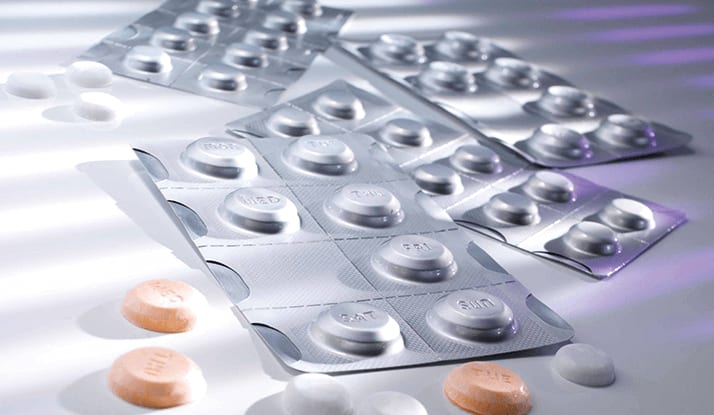
A pill incorporating an ingestible sensor – designed to measure medication adherence – has been filed for regulatory approval with the FDA (1). The pill is a new version of the antipsychotic drug Abilify (aripiprazole) and stems from a partnership between the Japanese company Otsuka Pharmaceutical and Proteus Digital Health, a US-based health technology company. The goal is to use the data from the sensor to not only check that the patient has taken their medication, but to get an inside view into the patient’s physiological response; the sensor can also measure metrics such as heart rate, body position and activity.
The sensor is embedded within the pill and upon reaching the stomach begins to be digested by the gastric juices, which powers the sensor by creating a small voltage. The electrical signal is then detected by a skin patch that marks the precise time that the ingestible sensor was taken, relaying the information to an application on a mobile phone or other Bluetooth-enabled device. Patients can monitor the data themselves or give consent for caregivers and clinicians to access the information. Proteus has been collaborating with the FDA since 2008 to determine a regulatory pathway for the ingestible sensor technology; the US agency approved the device’s technology platform in 2012, but the partnership with Otsuka is the first time that the sensor has been manufactured as a complete medication. Abilify is a treatment for patients with mental health disorders, such as schizophrenia, where it is particularly important to track and report adherence behavior – and given that Otsuka’s patent for the drug has just expired (and the fact that the FDA has recently approved generic versions), a digital makeover could be just what the doctor ordered. If approved, the digital drug is likely to be more costly than its generic counterpart, so the payer reaction remains to be seen. But the pharma industry certainly seems keen; there have been reports about a partnership between Proteus and Novartis, and other drug makers have also expressed interest (2) – after all, the ingestible sensor technology could potentially benefit other patients who may forget to take medication, such as those suffering from dementia. Watch this digital space.
References
- Proteus Digital Health, “US FDA Accepts First Digital Medicine New Drug Application for Otsuka and Proteus Digital Health,” (September 2015). www.proteus.com
- The Financial Times, “US Regulators Accept ‘Chip in a Pill’ Application (September, 2015). http://www.ft.com




